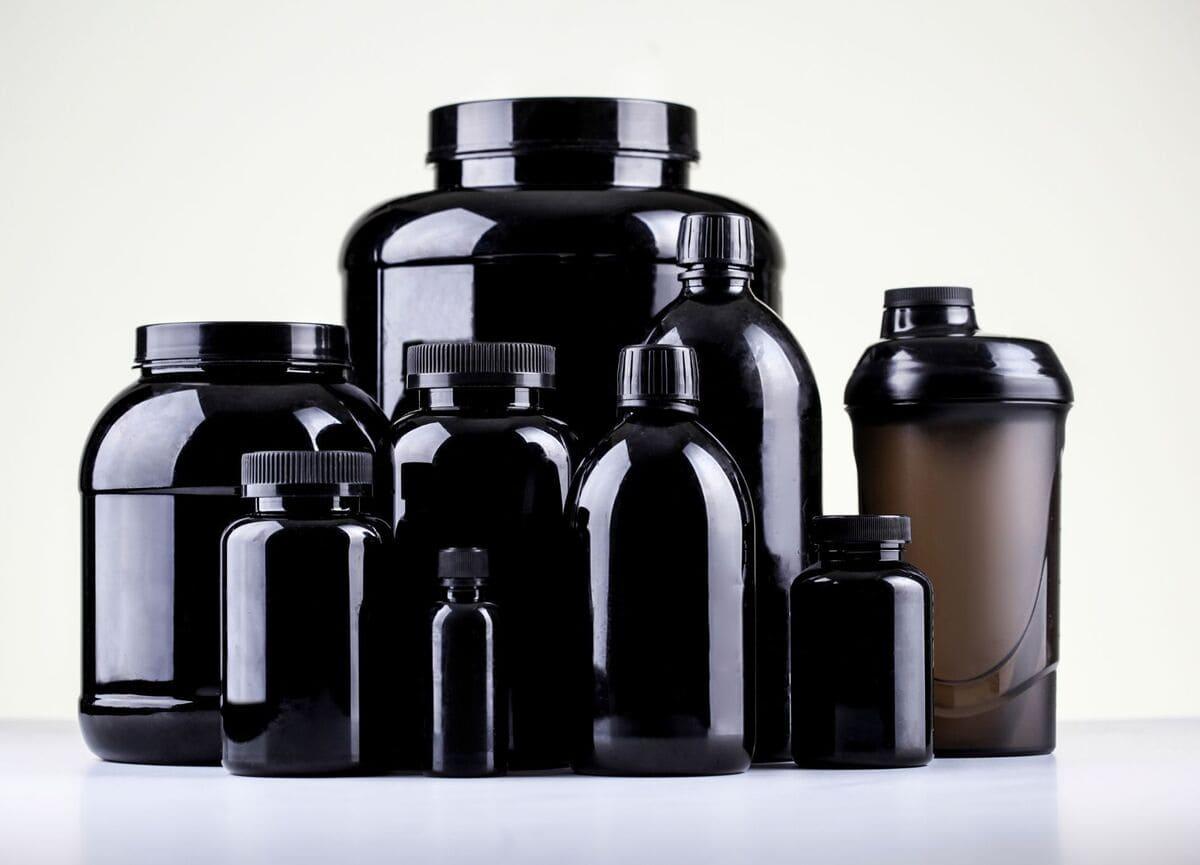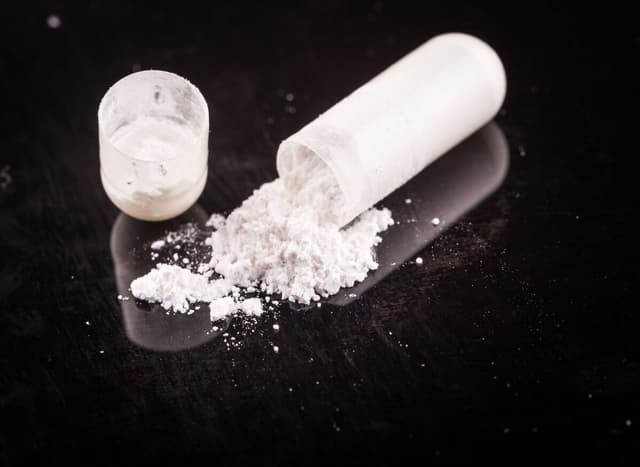Best Creatine: When Is the Best Time to Take Creatine for Fat Loss vs. Muscle Gain?

September 26, 2024
Creatine has become a staple supplement for many fitness enthusiasts, athletes, and bodybuilders. Its benefits for muscle growth and exercise performance are widely recognized, but there's often confusion about its role in fat loss and the optimal time to take it. Whether your goal is shedding extra pounds or maximizing muscle gain, understanding the timing of creatine supplementation can make a significant difference in your results. In this blog post, we’ll dive into when is the best time to take creatine for fat loss versus muscle gain, and how to make the most of this popular supplement.
Creatine and Its Role in Fat Loss and Muscle Gain
Creatine is a naturally occurring compound found in muscle cells that helps produce energy during high-intensity exercise. By supplementing with creatine, your muscles store more phosphocreatine, allowing you to perform better during short bursts of exercise, like weightlifting or sprinting. This leads to improved performance, muscle growth, and potentially even fat loss.
The question most people ask is, “When is the best time to take creatine for fat loss or muscle gain?” There’s no one-size-fits-all answer, as the optimal timing depends on your individual goals and how your body responds to creatine. Let’s break it down based on the specific goals of fat loss and muscle gain.
The Best Time to Take Creatine for Muscle Gain
Muscle gain is perhaps the most well-known benefit of creatine. By increasing your ability to lift heavier weights or perform more reps, creatine helps stimulate muscle growth over time. But when should you take creatine to maximize muscle gain?
Pre-Workout or Post-Workout?
The most common debate in creatine timing is whether to take it before or after your workout. Both strategies have their merits, but recent research suggests that post-workout creatine supplementation might offer a slight edge.
- Pre-Workout: Taking creatine before a workout can help increase the availability of phosphocreatine, which could improve your exercise performance. This means you may lift heavier, push harder, and increase overall training volume. While this sounds ideal, there’s limited evidence showing that pre-workout creatine leads to better muscle gains compared to post-workout.
- Post-Workout: On the other hand, taking creatine after a workout is thought to enhance muscle recovery. After exercise, your muscles are primed to absorb nutrients and replenish their energy stores. This is when muscle cells are more responsive to nutrients like creatine. Several studies have shown that post-workout creatine consumption leads to greater gains in muscle mass and strength compared to pre-workout dosing.
Daily Creatine Timing for Muscle Growth
For those focused on muscle growth, consistency is key. Whether you take creatine in the morning, before or after your workout, or at night, the most important factor is ensuring your muscles remain saturated with creatine. Here’s a general guide to daily creatine usage:
- Loading Phase: If you’re just starting with creatine, you might want to consider a loading phase. This involves taking 20 grams of creatine (divided into four 5-gram doses) for 5-7 days to rapidly saturate your muscles. After this, you can switch to a maintenance dose of 3-5 grams per day.
- Maintenance Phase: After the loading phase, take 3-5 grams of creatine daily to maintain muscle creatine stores. The timing of your daily dose doesn’t have to be exact—just be consistent and ensure you’re taking it around your workout for best results.
The Best Time to Take Creatine for Fat Loss
While creatine is widely known for muscle gain, its role in fat loss is often overlooked. Taking creatine won’t directly burn fat, but it can support fat loss goals by preserving muscle mass and boosting exercise performance. Here's how creatine timing can help you lose fat effectively.
Pre-Workout Creatine for Fat Loss
When it comes to fat loss, the key is creating a calorie deficit—burning more calories than you consume. However, this can lead to muscle loss, which is where creatine comes in. Creatine helps maintain muscle mass even when you’re in a caloric deficit, which is crucial for long-term fat loss success. By taking creatine before a workout, you can ensure that your muscles have the energy they need to perform at their best, even when your calorie intake is reduced.
- Improved Performance: When you're in a calorie deficit, your energy levels might drop, making it harder to push through tough workouts. Creatine can provide the energy boost you need to maintain intensity during high-intensity exercises like weightlifting or interval training.
Our Top Recommendations

Optimum Nutrition Micronized Creatine Monohydrate Powder
Micronized for easy mixing, supports muscle growth and endurance.
See on Amazon$0.35 per 5g serving

Nutricost Creatine Monohydrate Micronized Powder
Third-party tested, non-GMO, 5g of pure creatine per serving.
See on Amazon$0.2 per 5g serving

NSF Certified, supports muscle power and recovery.
See on Amazon$0.46 per 5g serving

ProMix Creatine Monohydrate Powder
Micronized, additive-free, ideal for performance and recovery.
See on Amazon$0.36 per 5g serving

NOW Foods Sports Nutrition Unflavored
100% pure creatine, GMP certified, boosts strength and endurance.
See on Amazon$0.2 per 5g serving
- Preserve Muscle Mass: One of the biggest challenges during fat loss is maintaining muscle mass. Creatine helps prevent muscle breakdown, ensuring that the weight you lose comes primarily from fat rather than muscle.
Post-Workout Creatine for Fat Loss
Taking creatine after your workout while in a fat-loss phase can still be beneficial, particularly for recovery. After an intense workout, your body is in need of nutrients to repair muscle tissue and restore energy levels. Supplementing with creatine post-workout can help reduce muscle soreness and aid recovery, allowing you to stay consistent with your training.
For those prioritizing fat loss, here’s a practical creatine strategy:
- Combine with Protein: To maximize both muscle retention and fat loss, combine creatine with a protein shake or high-protein meal post-workout. This will help promote muscle recovery while supporting fat loss.
- Take Consistently: Just like for muscle gain, consistency is critical. Whether you take creatine pre- or post-workout, the most important factor is maintaining creatine saturation in your muscles.
Practical Tips for Taking Creatine
Now that we’ve discussed the best time to take creatine for fat loss and muscle gain, here are some practical tips to help you get the most out of your supplementation:
Dosage and Timing Tips
- Stick to the right dose: For most people, a daily dose of 3-5 grams of creatine monohydrate is sufficient. If you're doing a loading phase, aim for 20 grams daily (split into four doses) for the first week.
- Timing flexibility: While creatine timing can play a role in optimizing results, don’t stress too much about exact timing. Whether you take it before, after, or even in the morning, consistency is what matters most.
- Hydrate: Creatine draws water into your muscles, so it’s essential to drink plenty of water throughout the day to stay hydrated and avoid any potential side effects like bloating or cramping.
- Combine with carbs: Research suggests that pairing creatine with carbs can improve its absorption. Taking creatine with a carbohydrate-rich meal or post-workout shake may enhance its effectiveness.
Avoiding Common Mistakes
- Skipping days: Creatine is most effective when taken consistently. Make sure you don’t skip doses, as it can reduce the benefits over time.
- Not loading properly: If you’re new to creatine, a loading phase can help saturate your muscles quickly. Skipping this phase may delay the full effects of creatine supplementation.
Conclusion: Maximize Your Results with the Best Creatine Timing
Incorporating creatine into your routine can significantly enhance both fat loss and muscle gain, but timing can make a difference depending on your goals. For muscle gain, post-workout creatine seems to offer a slight advantage, while pre-workout supplementation may help preserve muscle and boost performance during fat loss phases.
Regardless of your specific goal, the most important factor is consistency. Taking creatine daily, whether pre- or post-workout, ensures your muscles remain saturated and ready to perform. And don’t forget—hydration, proper dosing, and combining creatine with a balanced diet will help you maximize your results.






